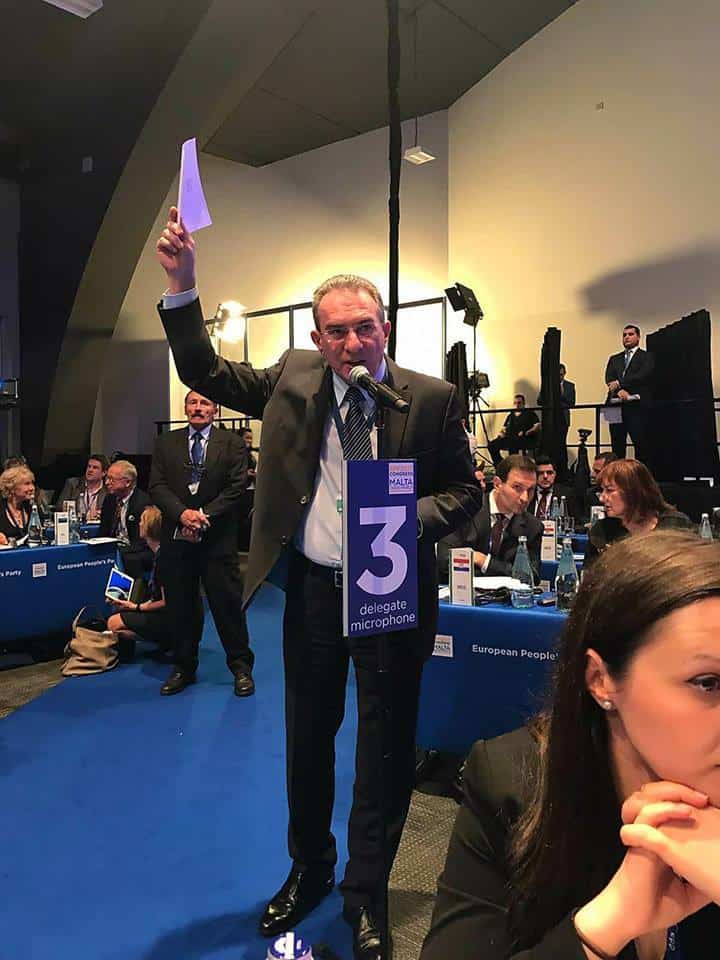European Union’s Cohesion Policy is increasingly more threatened by Brexit, which is the newest danger presaging an increasingly more uncertain future, according to Romanian MEP Iuliu Winkler of the European People’s Party (PEE).
“Given that the mid-term debate on the revision of the EU 2014-2020 budget is getting vertiginously near, it is increasingly more evident that the future of the Cohesion policy becomes uncertain. Just one third of the EU member states are net contributors to the EU common budget, while the remaining are net beneficiaries. Many of them, including the East European states, can draw from sizeable financial resources precisely from the EU’s cohesion funds,” Winkler told AGERPRES in a statement on Thursday.
He added that two thirds of the EU common budget is earmarked for EU’s two big policies: the cohesion policy and the common agricultural policy.
“Brexit is the newest danger threatening the future of the Cohesion Policy. UK’s contribution to the EU budget will disappear with the accomplishment of Brexit, most likely in 2019. We are talking about a sizeable contribution, some 11.3 billion euros in 2014. To put that in perspective: Romania’s contribution the same year was 1.3 billion euros, which is almost ten times less. After Brexit, the common budget will dwindle, which will automatically lead to a decrease in the Cohesion Policy,” said Winkler.
He went on to say the financial management of the ongoing migration crisis is another threat to the Cohesion Policy.
“There are very many voices asking for budgetary resources to be reallocated to manage the integration of migrants, the social services they need, and also to new European instruments, including coast and border guards. An increasing need to fund the so-called Junker Plan is a third threat against the Cohesion Policy. The European Fund for Strategic Investments is seen by many as a more modern alternative to the Cohesion Policy. Nothing more wrong! The Cohesion Policy is an investment policy designed for the transformation and modernisation of regions, cities and communities. While some decades ago the then member states fully benefited from funding attached to the Cohesion Policy, the now member states in Central and Eastern Europe are perfectly entitled to campaign for the preservation of such opportunities after 2020 as well. Debate in the European Parliament over the revision of the 2014—2020 budget, as well as debate on the future of the Cohesion Policy after 2020 will absolutely be political debates,” said Winkler.
At its recent Congress convention in Malta, EPP reconfirmed in one of the documents it approved its post 2020 support for the Cohesion Policy.
Winkler said EPP believes the Cohesion Policy should remain an important EU investment policy that will cover all the EU member states and regions.
“The percentage from the European common budget designed to fund the Cohesion Policy should be kept at its current level after 2020 as well. It is important to underscore that this position will be advocated in the European Parliament by the largest political group, the EPP MEP group. The stand taken in Malta is obviously good news to Romania. Our interest, shared with other Central and Eastern European member states, and the Visegrad states, lies with a clear distinction being kept in place between the Cohesion Policy, underpinned by the principle of solidarity, and the European Fund for Strategic Investments, which funding depends on the development of the banking systems in the applicant state and also on economic competitiveness rules, which, for the time being, are hard to achieve by the Eastern European member states,” said Winkler.
He added that, as well as a political commitment, the EPP Congress in Malta also made a practical and very important decision on the establishment of a working group on the future of the Cohesion Policy.
“At a political level, we have to get involved in the working group with politicians and specialists from Brussels as well as from Romania so that we may advance our interests. It is very important for the Romanian Government to finalise, as soon as possible, all the accreditation procedures for the administrative authorities dealing with the conduct of operational programmes. This is the third year of the 2014-2020 financial framework and any week of delay reduces our credibility in Brussels when we ask for more money for the Cohesion Policy while we are unable to spend what is already allocated to us,” concluded Winkler. AGERPRES (RO — author: Catalina Matei, editor: Claudia Stanescu; EN — author: Corneliu-Aurelian Colceriu, editor: Rodica Ionita)








